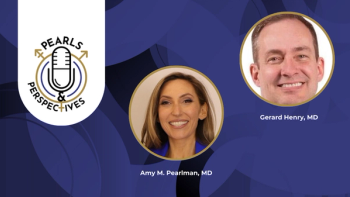
Elia Abou Chawareb, MD, on search trends for vaginal estrogen

Key Takeaways
- The study examines the correlation between medical recommendations for vaginal estrogen and public interest using Google search trends.
- Data from 2017 to 2023 shows increased public interest in vaginal estrogen, coinciding with influential publications and guidelines.
"We wanted to see if medical recommendations for vaginal estrogen for postmenopausal women for symptom correction have a correlation with rising interest [among patients]," says Elia Abou Chawareb, MD.
In this video, Elia Abou Chawareb, MD, gives an overview of the study “Analyzing Google Search Trends for ‘Vaginal Estrogen’ and Its Relationship to Medical Recommendations for Post-menopausal Women,” which he presented at the 25th Annual Fall Scientific Meeting of the Sexual Medicine Society of North America in Scottsdale, Arizona.
Transcription:
Please provide an overview of this study and its results.
In this paper, we wanted to see if medical recommendations for vaginal estrogen for postmenopausal women for symptom correction have a correlation with rising interest [among patients]. We analyzed the Google trends for this for the past 6 years. We searched for Google trends for vaginal estrogen. We limited it to 6 years just to account for the more recent trends. We did the same thing with PubMed. We limited also to 6 years and searched medical papers and publications during this time. We wanted to compare the 2 trends, the trend for Google interest and the trend for PubMed publication. What we found out that there's an increased interest between the years 2017 and 2023, and where there were peaks of increased interest, it coincided with the time of influential publications and influential guidelines for vaginal estrogen.
This transcript was AI generated and edited by human editors for clarity.
Newsletter
Stay current with the latest urology news and practice-changing insights — sign up now for the essential updates every urologist needs.






